SUMMARY
This is AI generated summarization, which may have errors. For context, always refer to the full article.
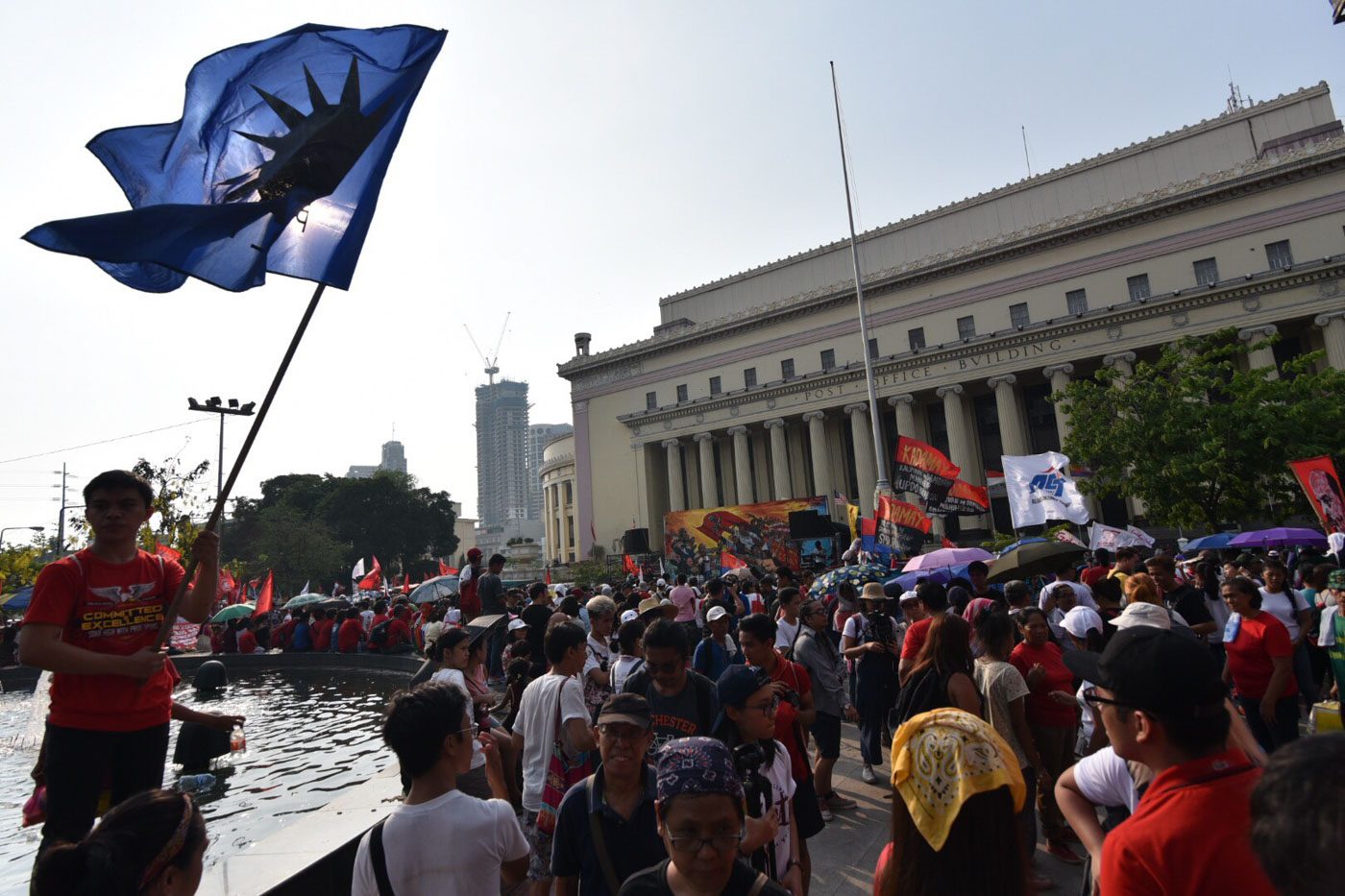
MANILA, Philippines (UPDATED) – Labor problems bleed to all sectors. This is what people gathered at the Liwasang Bonifacio showed on Labor Day.
From factory to health workers, from farmers to government employees, laborers marched under the heat of the sun from Welcome Rotonda to Liwasang Bonifacio protesting for their labor rights.
Police estimated the crowd at Mendiola to be around 3,500 to 4,000 people, whereas rally organizers said the Manila had around 35,000 people.
The protesters demanded the rejection of the recently signed Department Order 174 (DO 174) of the Department of Labor and Employment (DOLE) which set stricter guidelines for contractualization, and a call for a national minimum wage which has not been addressed by Congress.
From these same problems, those protesting have been affected in many different ways.
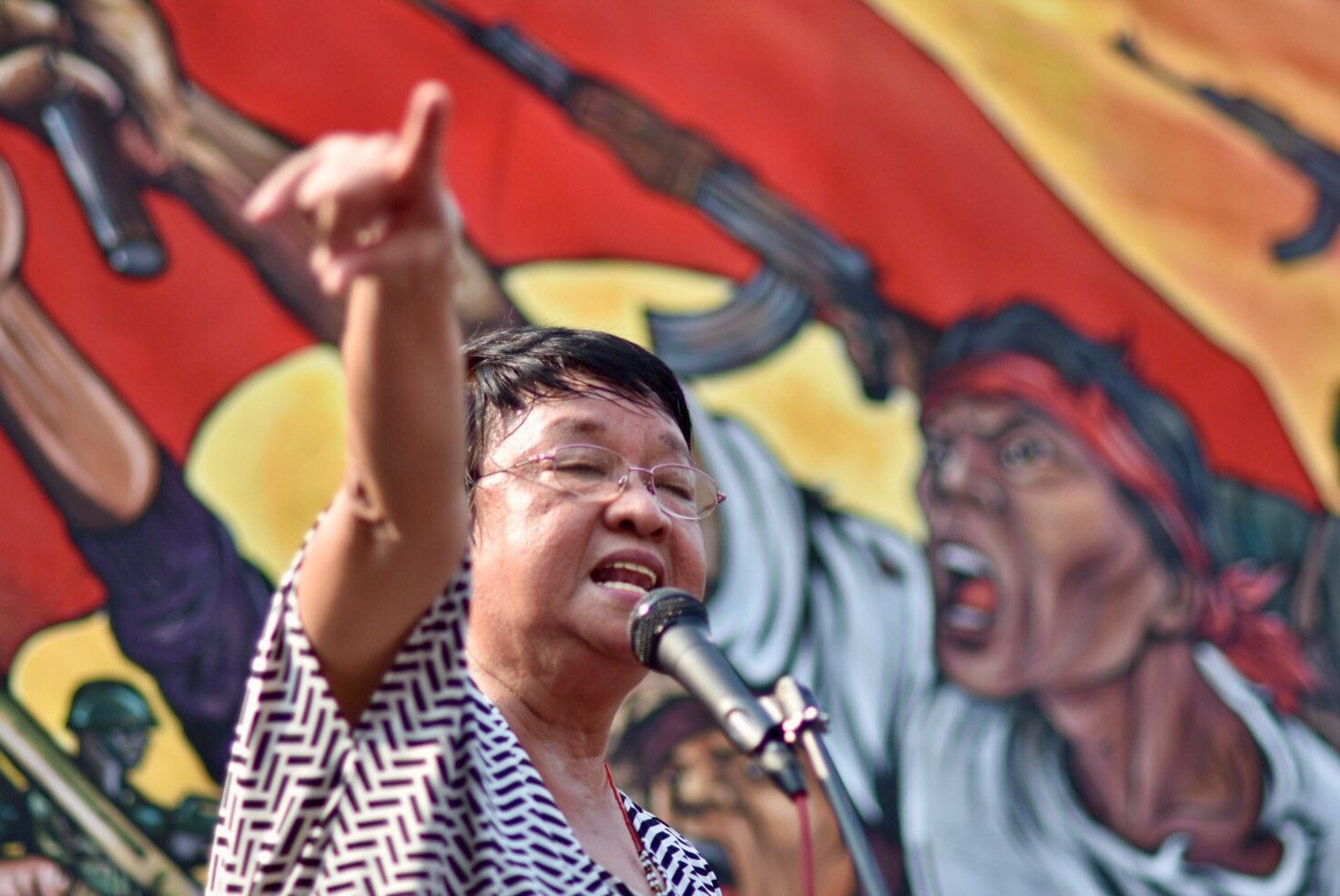
Factory workers
Makina, a labor organization that unites underpaid factory workers, called for regularization and higher wages.
“Dapat lahat ng manggagawa maging regular sa kani-kanilang mga trabaho para kanilang matugunan ang kani-kanilang mga pamilya,” said Allan Cabiles. (All workers should be regularized so that they can provide for their family)
Since most factory workers have families to provide for, Makina calls for raising the daily minimum wage from P491 to P750.
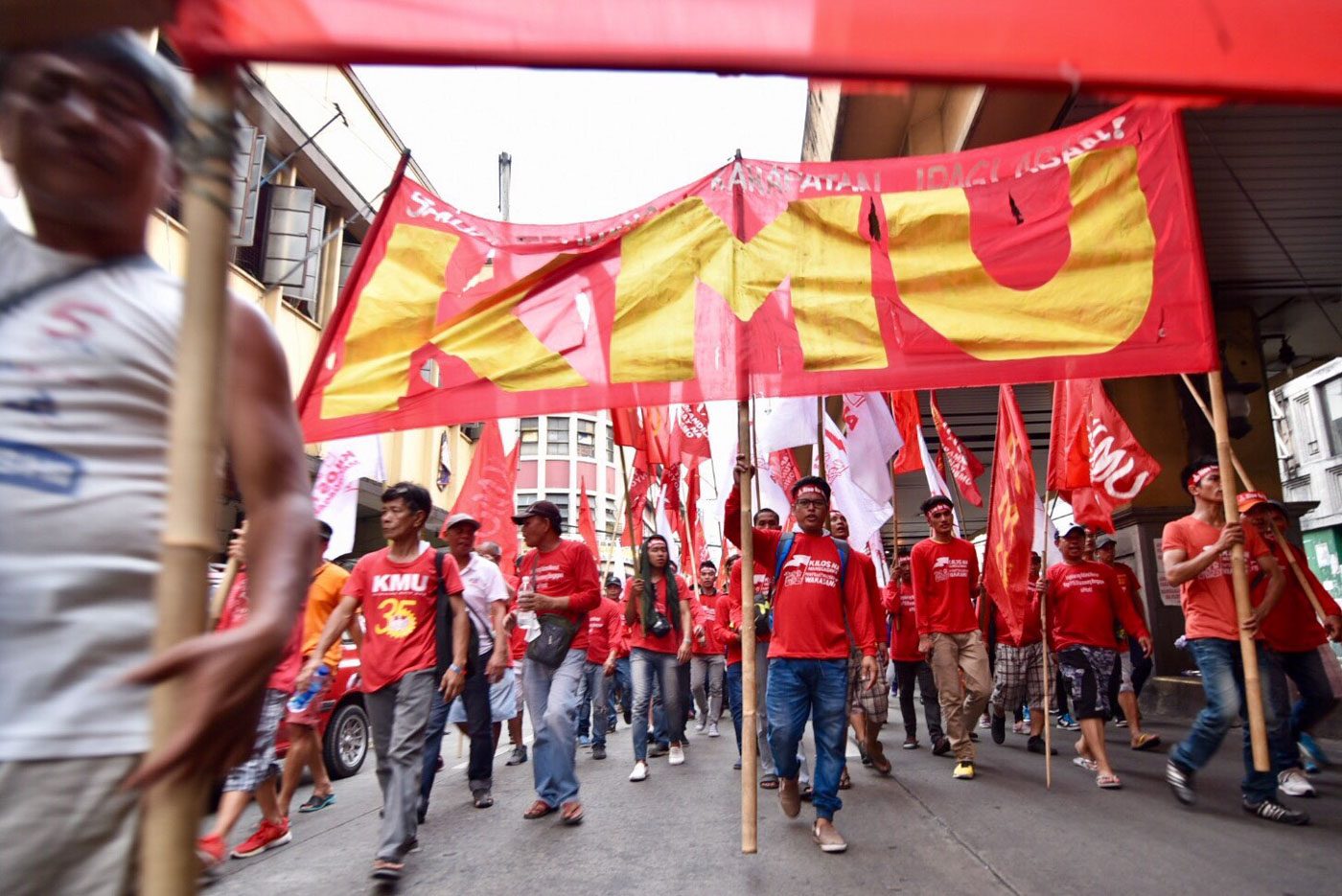
Health sector
However, P750 is still not enough, according to health sector workers. For the Alliance of Health Workers, the national conglomerate of health sector unions, “Our take home pay cannot take us home.”
“Sabi sa pag-aaral, dapat makakapag-uwi kami ng P1,057 kada araw pero merong mga health workers pa rin na sumasahod ng less than P9,000. So karamihan sa amin nakasangla yung ATM namin kaya lubog sa utang sa mga loans,” said Sean Vilchez, a member of AHW and a head nurse at the Philippine Orthopedic Center.
(According to studies, we need to take home P1,057 every day, but there are still health workers who get paid less than P9,000. So most of us, our ATM are pawned so we are buried with debt from loans.)
Aside from this, Vilchez said that healh workers are “burdened” by the Continuing Professional Development Law which requires them to take on units to renew their licenses.
“Dagdag pasanin siya sa mga health professionals natin na napaka-napabayaan na nga,” Vilchez said. “Tapos nag-iimpose pa yung pamahalaan ng mga pabigat at malalaking gastusin para makapagsilbi kaming mga health workers.“
(It is an additional burden to health professionals who have already been neglected so much. Then the government imposes burdens and additional expenses for us to serve)
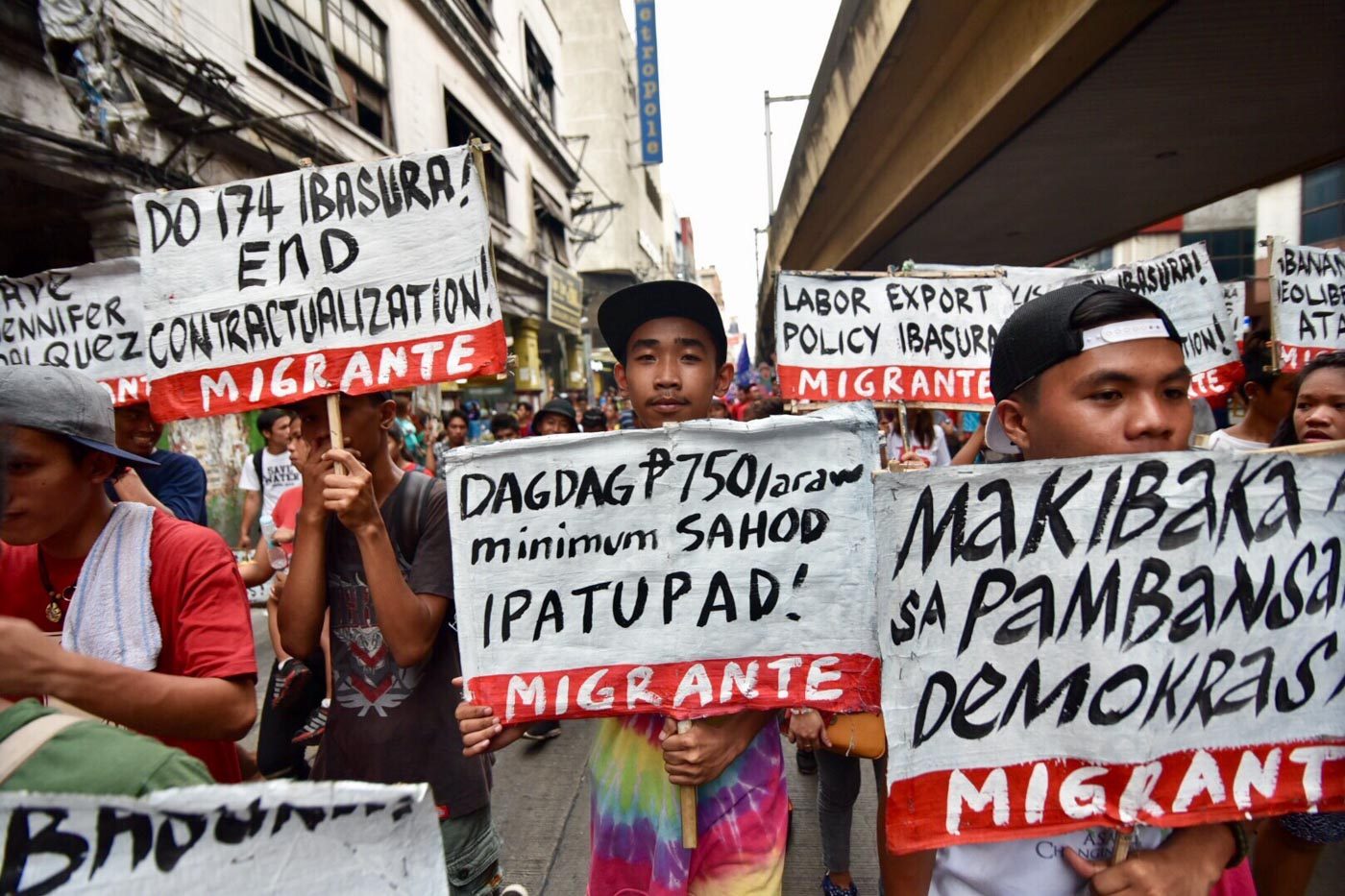
Women and LGBT
Gabriela called on recognizing women’s rights in the BPO and sales sectors where women work in numbers.
Bimbim Dela Paz, Public Information Head of Gabriela, said women are not permitted to take bathroom breaks and women in labor are made to sign waivers that free the company from responsibility if ever they encounter problems in the workplace like “slipping on the floor or getting hit while moving around.”
Dela Paz also emphasized that women have more needs than men and are burdened more in the workplace.
“Mga saleslady wala man lang upuan magdamag, buong araw nakatayo mga cashier tapos pinapasuot pa ng high heels tapos todo makeup tapos kakarampot lang yung sweldo,” she said.
(Salesladies do not have chairs all the time, cashiers stand for entire days wearing high heels and are made to wear makeup, then the pay is very small.)
Mich Lado of Bahaghari, a militant LGBT organization expounded on Dela Paz’s point saying that LGBT also experience unfair work policies such as “discrimination based on gender and sexual orientation”. Lado said that if the “appearance is not favored”, they get “dictated” on how to express themselves inside the workplace.
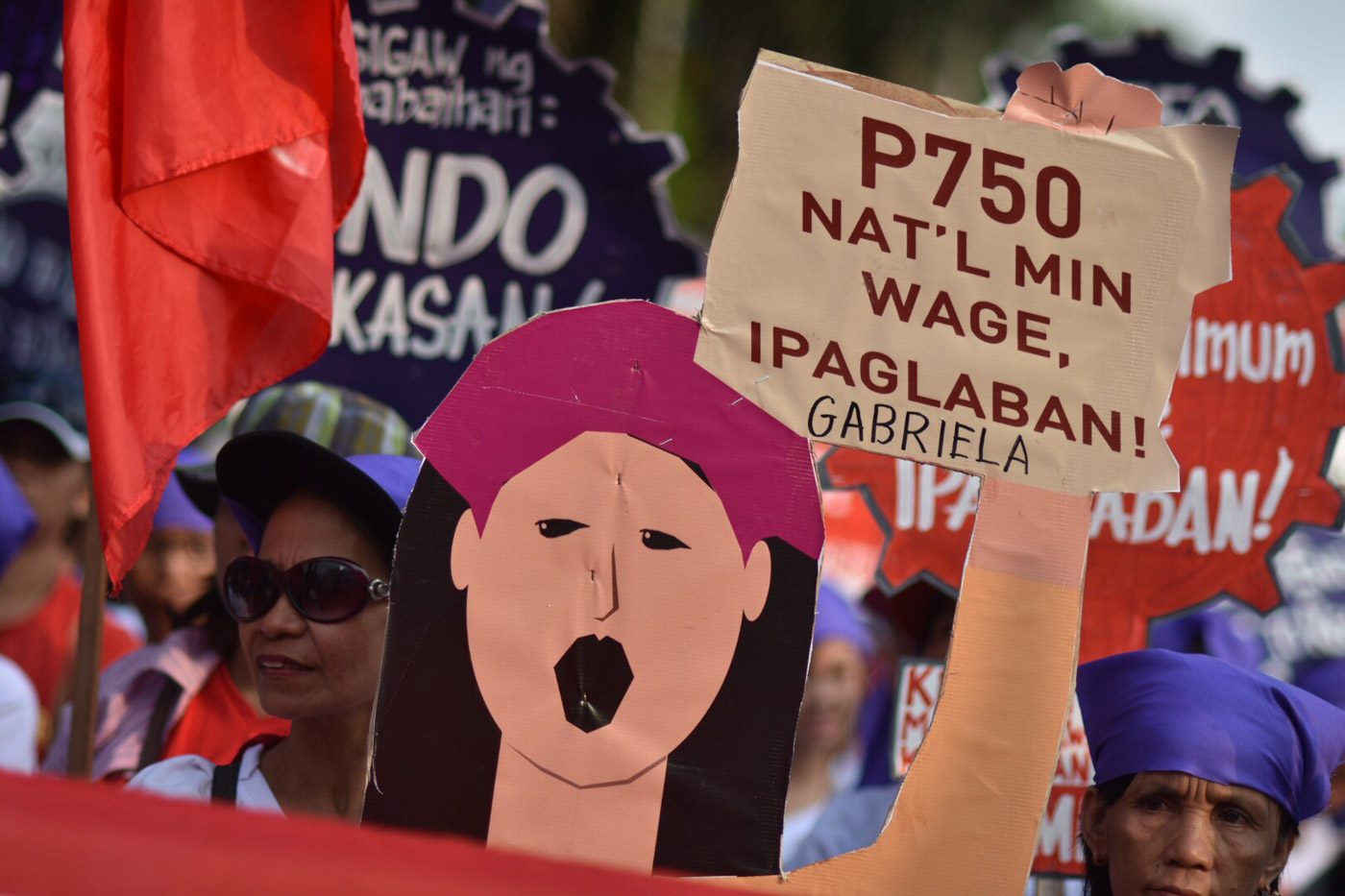
Farmers
Farmers also marched with the laborers as represented by the Kilusang Magbubukid ng Pilipinas (KMP). According to KMP Southern Mindanao Spokesperson Tony Salubre, their problem goes beyond agrarian reform.
“Unang una walang sosyal na serbisyo galing sa gobyerno,” Salubre said. “So ang gusto ng mga magsasaka sa Mindanao, hindi lang sa Mindanao, para sa administrasyong Duterte ay ipatupad na ang tunay na repormang agraryo at magbahagi ng lupa sa magsasaka at magbahagi ng serbisyong sosyal.”
(First and foremost, there is not social service from the government. So what farmers want from Mindanao, not just from Mindanao, for the Duterte Administration is to impelent real agrarian reform and distribute land, and provide social service.)
According to Salubre, farmers stand with laborers because farmers “reap the harvest” that workers consume, and workers “provide for the needs of all Filipinos.”
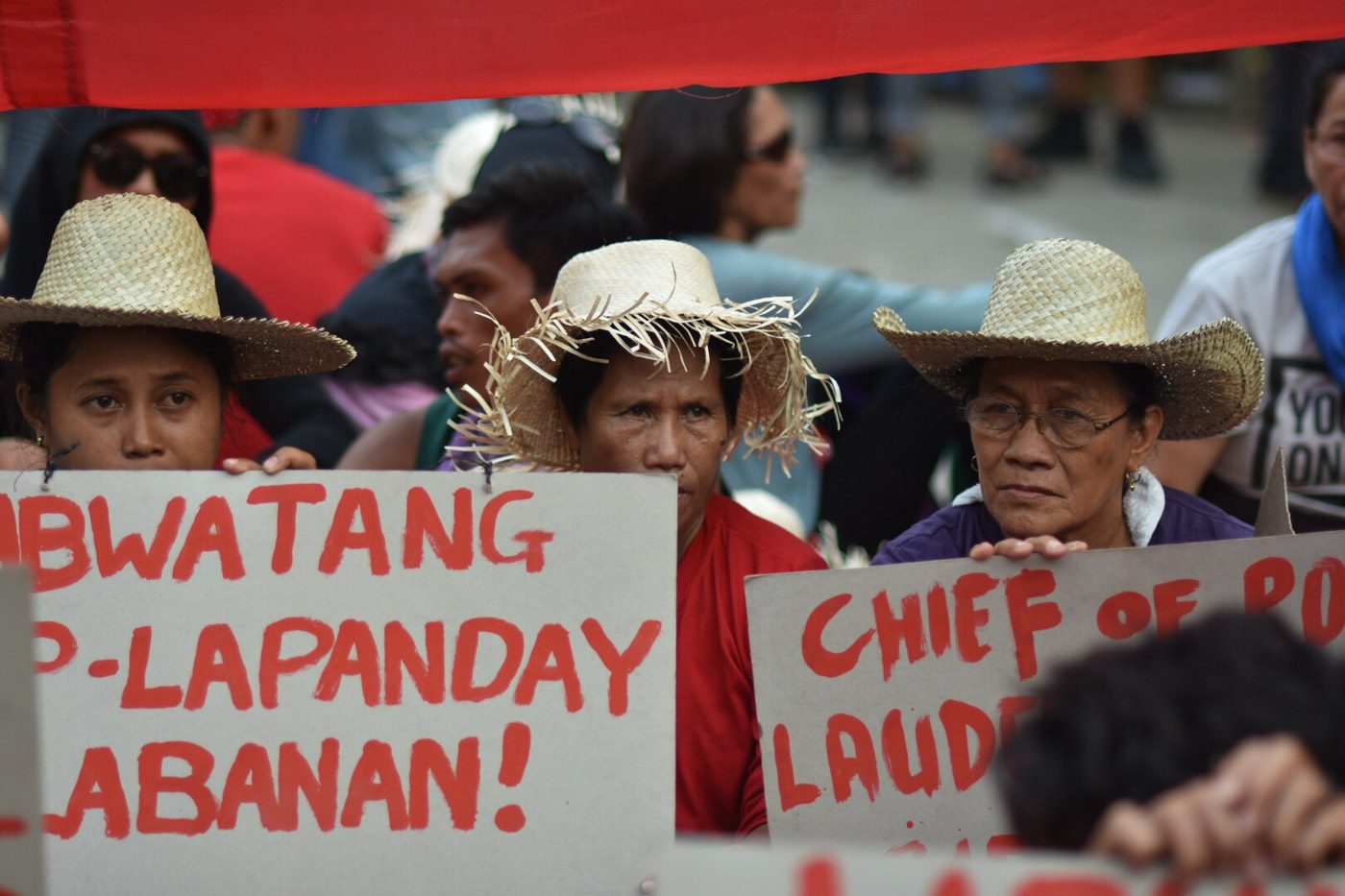
Teachers
Cultivating the minds of all Filipinos, teachers also joined the protest to demand higher pay. According to Alliance of Concerned Teachers Public Sector President Jocelyn Martinez, they are being abused in the education sector as their wages are “too low for professional positions.”
The entry level salary of public school teachers is P19,500. But according to Martinez, subtraction by taxes and payment for school materials leave teachers with so much less.
“This is below other professionals,” Martinez said. “Ang mga military kadete pa lang sumasahod na sila nang mahigit 20 mil, yung mga call center mahigit 20 mil, pero kami na professional, may masteral, may doktoral ay kapos talaga.”
(In the military, cadets get more than P20,000, call center workers get P20,00, but us who are professionals, with masters, with doctorals are really not paid enough.)
Martinez also lamented that the K-12 program has brought additional expenses to teachers.
According to Martinez, they have not been provided complete teaching materials so they are forced to research on their own, and buy their own laptops and projectors for discussions. There is a chalk allowance, she said, but it only amounts to only around P5 a day.
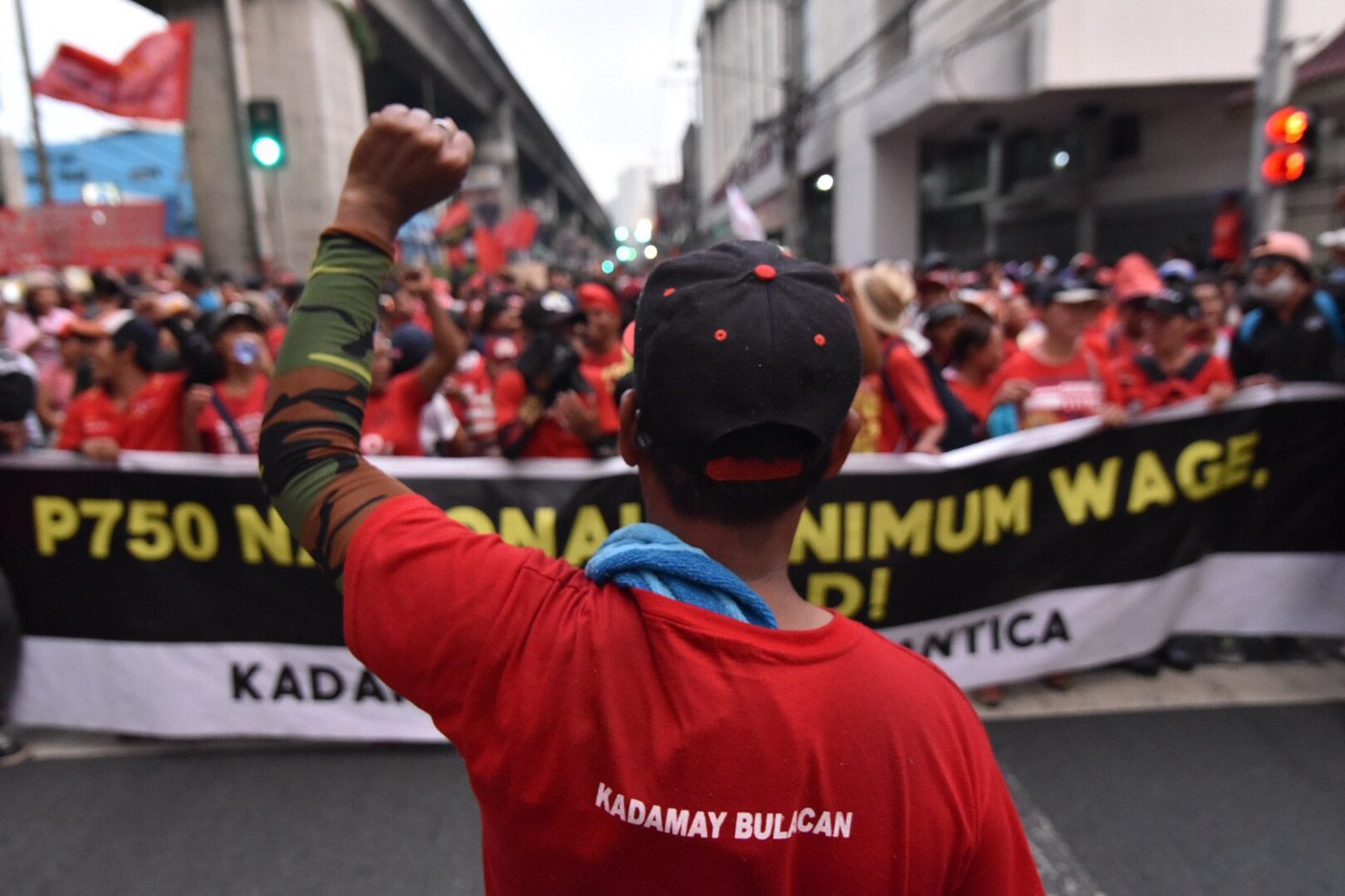
Government employees
The government is not exempted from labor problems. Rico Manalo of the Department of Environment and National Resources Employees Union (DENREU) said that in his department alone, there are 12 people who are contractual workers.
Their most recent problem, according to him, is in contractual workers receiving late payments.
“March na sila nakasweldo, nagstart na sila ng January. May two to 3 months delay,” he said. (They got paid in March. They started in January. There’s a two to three-month delay.)
Manalo also found it unfair his contractual counterparts are producing the “same output” as he is, but are compensated less and lack the security of tenure.
He added that the DENR consultants “are paid too high,” while lower ranking employees are not compensated enough.
“Kumbaga parang hindi equal sa trabaho tulad ng ginagawa ng mga lower rank. Ang sa amin, hindi na ibaba ang sweldo kundi itaas din yung sa mga contractuals,” he said. (It’s like the work is not equal to the pay like the lower ranking officials. For us, we don’t want to bring down their salary but to raise the salary of the contractuals).
– Rappler.com
Add a comment
How does this make you feel?
There are no comments yet. Add your comment to start the conversation.